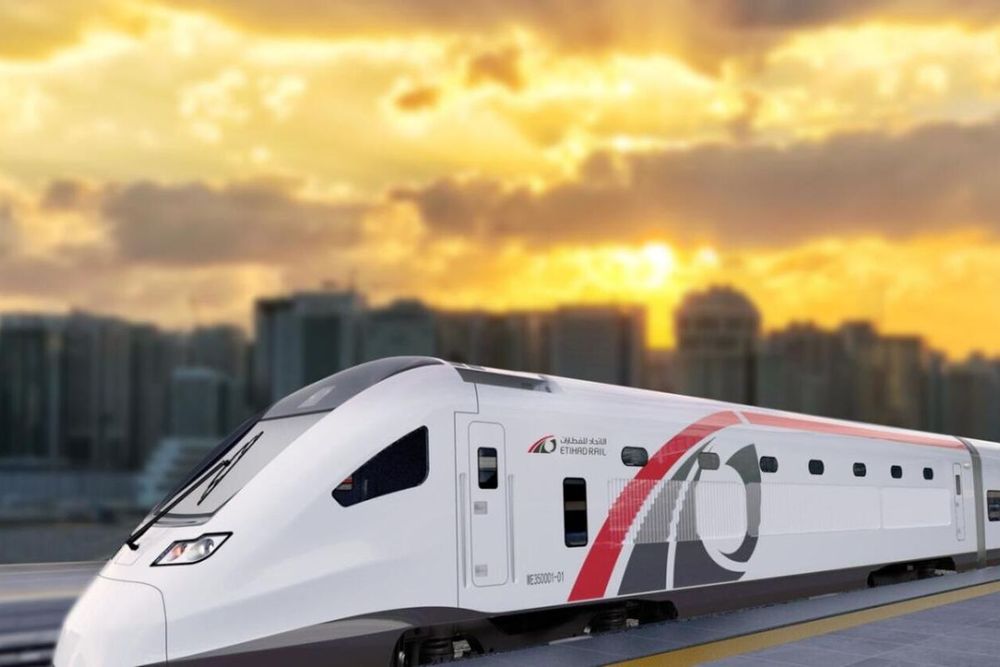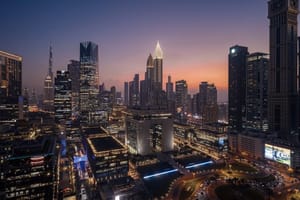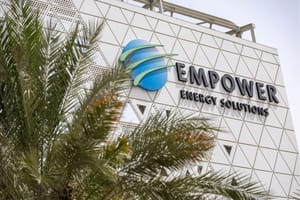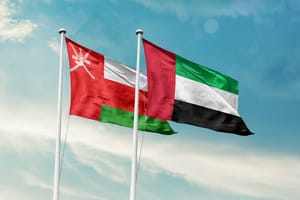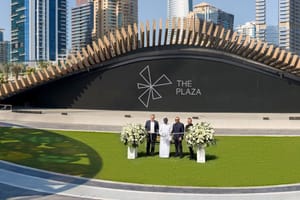Linking the seven emirates from the Saudi Arabia border to the Oman border, the Etihad Rail is an integral part of the UAE Railway Programme. It is expected to be the catalyst for the growth of property markets across emirates.
Etihad Rail, which is expected to carry over 60 million tonnes of freight and 36.5 million passengers by the year 2030, will transform the economic landscape of the country by connecting 11 major cities of the seven emirates. The national rail network of the UAE is expected to contribute to the country’s economy and sustainability, with the real estate sector leveraging the most benefits.
The proposed connectivity to GCC countries will also benefit the rising UAE property market. It aligns with the UAE’s economic goals and agenda, such as the UAE 2050 Net Zero Initiative and UAE Centennial 2071 project.
The 1200-kilometre-long project will play a pivotal role in bridging the gap between the seven emirates, making commutation easy for UAE residents, according to the Zoom Property Insights.
Ata Shobeiry, CEO at Zoom Property, said Etihad Rail will benefit the country in more than one way.
“While it will certainly make commutation a breeze within the UAE, there will be a significant impact on the property markets across emirates as well. Communities and neighbourhoods located close to the Etihad Rail stations will record a price hike. Moreover, there will be an increase in rental value as well. Apart from the boost in the real estate sector, the pioneer project will also bring economic prosperity and sustainability while reducing carbon footprints.”
The Etihad Rail will pass through some of the notable communities in Dubai, such as Arabian Ranches 2, DAMAC Hills, Town Square, Al Furjan, Green Community, Arabella, Mudon, Reem, etc. The impact will not only be limited to these areas, but communities located close to them will also benefit from this mega project, as they will witness an increase in property prices.
Furthermore, the rental market will also benefit from this project.
“It’s hard to give estimates on how much the price will increase once this first-of-its-kind project is ready to serve residents, but given the magnitude of the project, we can safely say the changes in the Dubai property market will be quite significant. For example, when areas such as Dubai Investment Park, Discovery Gardens, and Jumeirah Golf Estates will get connected to this $11 billion project, this will result in an increased demand for properties in these areas and subsequently a rise in price,”
Shobeiry said.
Once operational, it will take 50 minutes to reach Fujairah from Dubai and 100 minutes from Abu Dhabi through Etihad Rail. This ease of commutation will give a boost to the property market in Fujairah.
Currently, many people live in Sharjah and work in Dubai due to the lower living cost. With Etihad Rail’s second phase becoming operational, Fujairah will be another prospect for tenants working in Dubai. This will impact its rental market.
Created in 2009, the first stage of Etihad Rail is already operational since 2016. It’s a freight service connecting the gas fields at Shah and Habshan to Ruwais. There’s no firm completion date for the second stage announced as of yet, it’s learnt that the project is moving forward rapidly as more than 70 per cent network has been built, according to the Zoom Property Insights. The second stage will connect Ghuwaifat and Fujairah.
“The inter-emirate rail connectivity will be a major boost to economic activity across the UAE. It will contribute to the population migration, GDP growth and economic development of the country.”
Shobeiry concluded.
- Linking the seven emirates from the Saudi Arabia border to the Oman border, the Etihad Rail is an integral part of the UAE Railway Programme. It is expected to be the catalyst for the growth of property markets across emirates.
- Etihad Rail to connect all seven emirates and carry 60 million tonnes of freight and 36.5 million passengers by the year 2030.
- Once operational, the project will benefit property markets across the emirate.
- The project will limit the commute time between Dubai and Fujairah to Abu Dhabi and Fujairah to 50 and 100 minutes, respectively.
- The first stage of the project is already operational and connecting the gas fields at Shah and Habshan to Ruwais.
News Source: Khaleej Times
